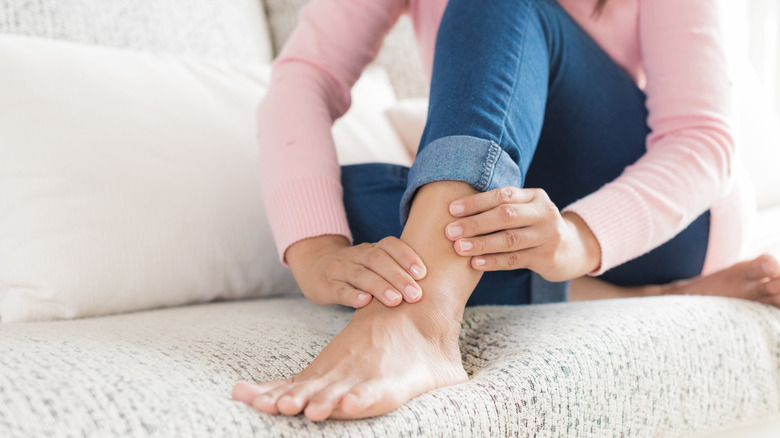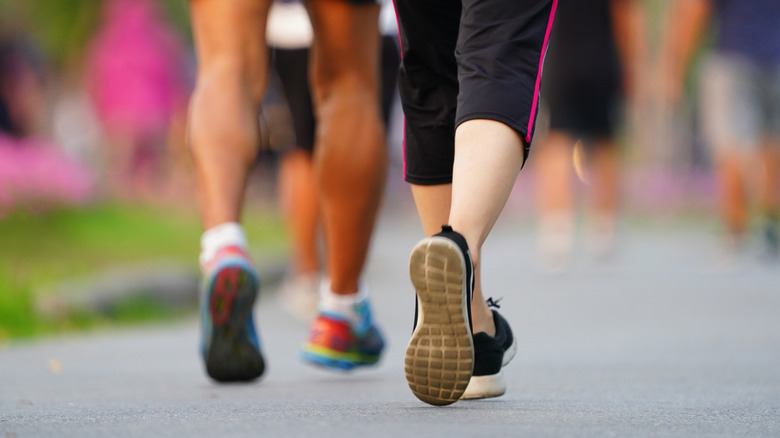Healthy Habits You Never Realized Were Ruining Your Diet

We all know the basics of a healthy diet – eat your veggies, avoid processed foods, stay hydrated, and so on. However, there are a few healthy habits that you may not be aware of that can actually be sabotaging your diet. Read on to find out what they are and how to avoid them. 1. You’re not drinking enough water You’ve probably heard that you should drink eight glasses of water a day, but chances are you’re not meeting that goal. In fact, most people are only drinking about half of that amount. And while you may think that’s not a big deal, dehydration can actually lead to a whole host of problems, including weight gain. When you’re dehydrated, your body holds on to water in an effort to compensate for the lack of fluid. This can lead to bloating and water retention, which can make you look and feel heavier. Not to mention, dehydration can also cause fatigue, headaches, and difficulty concentrating. So if you’re trying to lose weight, it’s important to make sure you’re drinking enough water. 2. You’re not eating enough protein If you’re trying to lose weight, you may be cutting back on calories, which means you’re probably also cutting back on protein. But protein is actually an important part of a healthy diet, and not getting enough can actually sabotage your weight loss efforts. Protein helps keep you feeling full and satisfied after meals, so you’re less likely to snack or overeat. It also helps build and maintain muscle mass, which is important for burning calories and boosting metabolism. So if you’re trying to lose weight, make sure you’re getting enough protein. 3. You’re not getting enough sleep You may not realize it, but sleep is an important part of a healthy diet. When you don’t get enough sleep, your body produces more of the hormone ghrelin, which increases appetite. At the same time, it decreases the hormone leptin, which helps regulate appetite. So not getting enough sleep can actually make you eat more. In addition, sleep deprivation can lead to fatigue and make it harder to stick to a healthy diet. So if you’re trying to lose weight, make sure you’re getting enough sleep. 4. You’re eating too many unhealthy snacks We all have a weakness for unhealthy snacks, but if you’re trying to lose weight, they can actually sabotage your diet. That’s because unhealthy snacks are often high in calories and low in nutrients, so they can add up quickly. To avoid this, make sure you’re eating healthy snacks that are high in protein and fiber and low in calories. And if you do indulge in an unhealthy snack, make sure it’s in moderation. 5. You’re not staying active If you’re trying to lose weight, you need to make sure you’re staying active. That means getting at least 30 minutes of exercise a day. But if you’re not used to exercising, it can be hard to get started. One way to make it easier is to find an activity you enjoy. That way, you’re more likely to stick with it. You can also break up your exercise into smaller increments throughout the day. And if you have trouble fitting exercise into your schedule, try getting up a little earlier or working out during your lunch break. Making these small changes can help you lose weight and improve your overall health. So if you’re trying to make a healthy lifestyle change, make sure you’re aware of these healthy habits.
Snacking on too many good-for-you nuts
like almonds, pistachios and cashews can add up to weight gain We all know that nuts are packed with healthy fats, fiber and protein. But did you know that eating too many nuts can actually lead to weight gain? Yes, it's true! While nuts are a healthy snack option, they are also high in calories. And if you're not careful, you can easily eat too many and end up packing on the pounds. So, how can you enjoy nuts without going overboard? Here are a few tips: - Stick to a handful. A serving of nuts is about a small handful, or about 20-30 nuts. - Don't eat them mindlessly. Pay attention to what you're eating and savor each bite. - Balance them out. If you're going to have a handful of nuts, pair them with a piece of fruit or a veggie to help balance out the calories. - Watch your portion sizes. If you're buying nuts in bulk, be sure to portion them out into single-serving bags so you don't eat too much at once. following these tips, you can enjoy nuts as part of a healthy diet without having to worry about weight gain. So go ahead and snack away!
Recommended
NEXT UP
What It Really Means When Your Ankle Pops

When you hear a pop in your ankle, it's usually not a good sign. It can be a sign that you've rolled your ankle, which can lead to serious pain and swelling. It can also be a sign of a more serious injury, like a fracture. If you hear a pop in your ankle, the first thing you should do is stop what you're doing and rest. If you're able to walk, try to walk slowly and avoid putting too much weight on your ankle. If the pain is severe, you should seek medical attention. There are a few different things that can cause your ankle to pop. One is a sprain, which is when the ligaments that support your ankle are stretched or torn. This can happen if you roll your ankle or if you land on your foot awkwardly. Another possibility is a fracture. This is a break in one of the bones in your ankle. It can happen if you fall or if you have a direct impact to your ankle. If you hear a pop in your ankle, it's important to seek medical attention right away. This is the only way to know for sure what's causing the problem and to get the treatment you need.
Can ankle popping be stopped?
Are you tired of your ankle cracking every time you take a step? Well, you're not alone. Many people experience this same issue on a daily basis. But the good news is that there are ways to stop your ankle from popping. Here are a few tips to help you get started: 1. Strengthen your ankle muscles. If your ankle is weak, it's more likely to pop when you walk. So, one of the best ways to prevent this from happening is to strengthen your ankle muscles. There are a variety of exercises you can do to achieve this. For example, you can try calf raises, ankle rotations, and even balance training. 2. Improve your flexibility. If your ankles are tight, they're more likely to pop when you walk. So, it's important to work on improving your flexibility. One way to do this is to stretch your ankles and calf muscles daily. You can also try foam rolling or massage to help loosen up your muscles and improve your range of motion. 3. Wear supportive shoes. If you don't have supportive shoes, your ankles are more likely to pop. So, make sure you're wearing shoes that provide good arch support and cushioning. This will help to absorb the impact of each step and protect your ankles from injury. 4. Avoid high-impact activities. If you put too much stress on your ankles, they're more likely to pop. So, it's important to avoid high-impact activities, such as running or jumping. If you do these activities, make sure you warm up properly and take breaks often. 5. See a doctor. If you've tried all of these tips and your ankle still pops, it's time to see a doctor. They can help to identify any underlying issues, such as arthritis or a ligament injury. Once these issues are addressed, your ankle should stop popping. If you're sick of your ankle popping, don't despair. There are ways to stop it. By strengthening your ankle muscles, improving your flexibility, and wearing supportive shoes, you can decrease your risk of this happening. And, if all else fails, see a doctor to get to the bottom of the problem.


